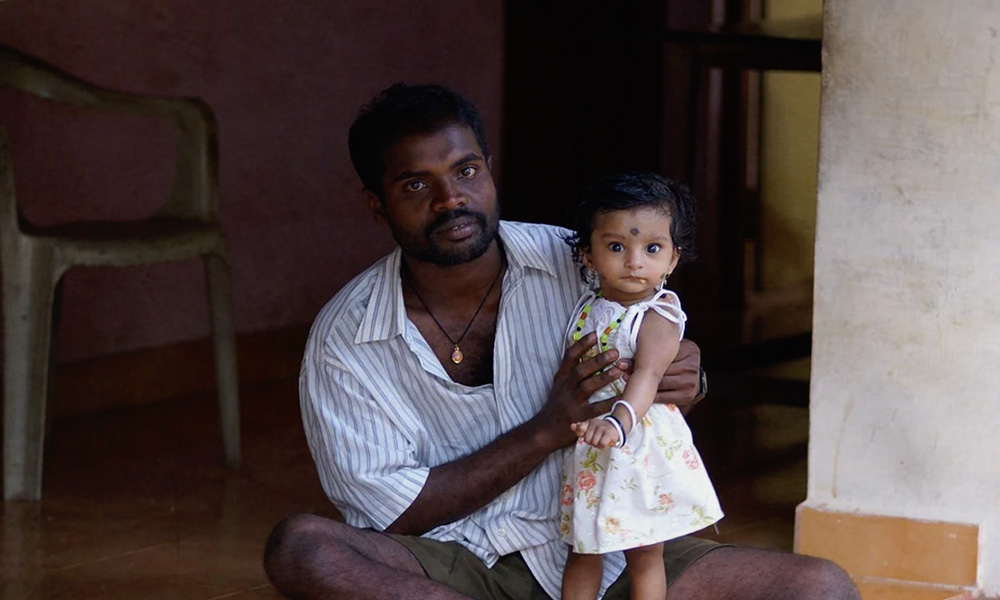Sometimes, life does change overnight. One day, the streets were hustling and bustling with myriad activities, the offices were full, and children came back from school with a dozen stories to share. The next day, we woke up to empty streets, skeletally staffed offices and untimely school holidays.
A global pandemic has brought our world to a standstill. Indeed, what we are experiencing today is something no one has lived through before. Understandably, such novel situations bring about novel challenges that we need to learn to adapt to and overcome, while keeping our sanity intact. Sounds simple, but doesn't work out as easily.
While most of us adults are trying to adjust to this lockdown, understanding the need for social distancing and facing quarantine for the first time in our lives, for children these are puzzling times. They have questions, they are looking for answers and of course, they are bored. They do not necessarily understand what is keeping them away from the outdoors, from their friends and from the world they have known since their birth.
Needless to say, the realities are different for different children. Children in urban privileged set ups face issues that are different from children in urban slums, and the same holds good for the children in rural India. The issue of survival takes over as the prime concern in majority of the cases for underprivileged children. Keeping them safe, protected and healthy comes a close second.
In unprecedented situations like these, children's vulnerabilities grow manifold. But there are rays of hope too. There are people who are going extra miles to ensure that the basic question of survival and food security is answered. There are people who are working remotely to device activities that can keep children busy and engaged. In times like these, people who care are coming out of the shadows and into the limelight. And that's a wonderful thought in itself.
In dealing with stressful situations at work and at home, we do tend to overlook that children grow anxious and feel stressed too. They are, in all likelihood, much more sensitive to changes in the world outside, changes in their routine and changes in the household dynamics.
Children observe, children notice and children internalize. It becomes our responsibility as adults to pay extra attention to their psychosocial well-being as children are unable to express themselves like us.
But here's what I love about CRY – Child Rights and You. Whenever we are in crisis, we go back and touch base with the child in us. And we believe that while we shape children with our thoughts and actions, children shape our world with their innocence. This lockdown has brought in a wonderful opportunity for us, the parents, as we engage in meaningful exchange between us and our children.
Below are some creative and innovative ways to be with children, approved by the child in us at CRY! Be sure to try them at home, and watch your spirit be uplifted.
Listen, listen and listen enough – Children have wild imaginations. Let them take you to a world that lives inside their heads. Storytelling sessions are a great way to understand how your child's mind works. Listen to their versions of the lockdown stories. How do they see it? Are these similar to Harry Potter's, writing lines in Professor Snape's dungeon? Maybe their stories will tell you how they feel. Address those concerns with facts and enjoy the wild stories that pour out of their heads.
Read with them – Encourage reading books. I'm telling you, it's the best of practices a child can grow. If your child doesn't like to read, you can read to them. Stories are wonderful escapades from a world full of not-so-beautiful things. Read them your favourite classics, or just make up stories as you go. You'll be surprised to hear yourself speak (that imagination that lay hidden behind the power-point presentations and excel sheets will unleash itself too!)
Create Partnerships – This is a great time for children to start enjoying (and actively participate in) household chores. Make housework the most fun part of the day. Hand them the broom and pretend that it's a magic wand that makes dirt disappear (what was the vanishing spell in Hogwarts? 'Evanesco', I guess)! Show them your fun side. Teach them the games you would play with the brooms when you were children. Treat them like partners and ask them to find better ways to keep the house clean.
Work Together – Stick to timelines. While we tend to focus on the fact that our working hours should not get disturbed, make it a point to ensure that fun hours are not disturbed either. Stress on the importance of fun. Your child will value the routines much more.
Share your Secrets – Trade a childhood secret for one of theirs. Open up to your child and show them that it is okay to trust and be honest. It's not a bad idea to confess to your child that while in school you once submitted a blank paper in Geography class test, and got a zero. Keep judgements aside. Watch a healthier relationship grow.
Create Adventure – Turn cooking episodes into an adventure. This is a great time for children to know about the kitchen and learn to create platters (it's much more than cooking actually, friends!). Take this opportunity to show them that cooking (or household chores for that matter) is everyone's responsibility, and it's always better when it's shared.
Break gender stereotypes. Kitchen helpers running around to fetch you the correct masala from the correct place can soon become your favourite treasure hunt game! Do the same with hygiene. Make handwashing a fun activity, sing along while you wash your hands together for twenty seconds at least (each time). Teach children how to save water as well.
Be Creative – Time to bring back your hobby and share it with your child. Did you love painting? Dancing? Singing? Let's have some creative competitions in the house! Have a talent showcase session every week. The winner can hand off one household chore to the loser! This becomes even more fun if you share a hobby, or would like to encourage your child's hobby by participating in it. Does your child love dancing? Pretend to be on a show with them. What fun! (You've done this when you were a child, haven't you?)
Create Memories – Our world is too fast paced for children to have access to their parents' time for such a long period. Vacations have homework and camps. Make the most of the time you are getting with your children to create positive memories. Let this be that time 'when papa and I learnt how to wash clothes together' or 'when mamma and I planted this seed in wet cotton wads together.' Play family games together and be the child you used to be.
Create Magic – This is the time to turn monotonous events into magical ones, to learn the importance of simple things in life the fun way. What if that pencil is Hermione's wand? Would you not take care of it and put it away properly? Come on, you can change the world with that pencil! What if the empty roads turn into rivers all of a sudden?Let's make paper boats out of waste paper and use our wands to turn them into real boats! What if we make the sadness and boredom disappear with one stroke of the magic broom? Come on, say the magic words with me…
Be Kind – Show your children how important a value kindness and generosity is. Explain why your house-help is on leave with pay. If you are able to, take care of someone who is not being able to cope with the situation. Reach out to older people in the family who may be feeling lonely and involve your children in the process. Or, just tell them why it's so important to extend a hand of support to the people in distress. Demonstrate kindness in all you do. It does go a long way and it is the best form of magic for the world today.
Doesn't it feel like this list can be never-ending? Remember, all that matters in the end, is the way we look back at these trying times. Were we able to give our children memories they can cherish lifelong? Were we able to do that for ourselves? That's all that will matter when all of this is over. That's all what we learnt from our four decades of working with children's rights – it's most important for children to be happy, healthy, creative and well-protected during crises.
Remember, it is equally important to take care of your own mental health. Get in touch with the child in you, and she will tell you what to do. We may never again get this chance to connect, with our children, with our families and with the little one we hide inside ourselves while we face the challenges of the world. Let's make the most of this time.
Puja Marwaha is the CEO of CRY – Child Rights and You.
With a degree in liberal arts and Human Resources development education from XISS - Ranchi, Puja Marwaha made the transition from the corporate to the social sector early in her career. Having worked earlier with various corporate organizations, she joined CRY – Child Rights and You in 1994 to set up the organization's Human Resources function. In 2002 she moved into more general management roles in CRY. Now, Puja is the Chief Executive Officer at CRY.

 All section
All section













